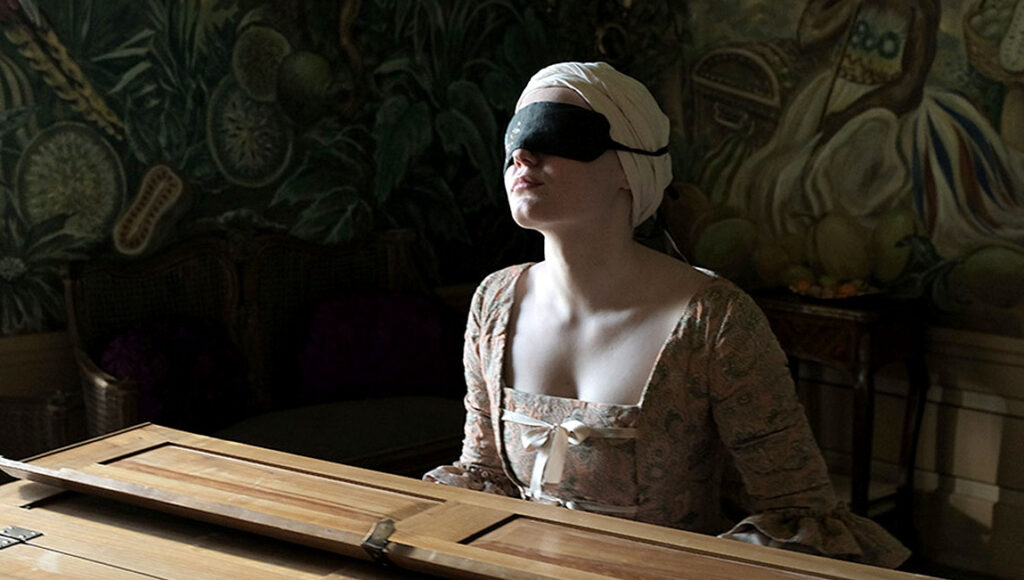Mademoiselle Paradis tells the true story of the titular musical prodigy, an Austrian contemporary of Mozart, during a most strange period of her life. Blind from the age of three, Maria Therese Paradis (Maria-Victoria Dragus), at the behest of her embarrassed, vapid parents, temporarily undergoes an experimental treatment for her condition. Thrust into a Freaks-like world of misfits with medical anomalies, Mademoiselle Paradis is patiently paced, reveling in the decadence of this new environment and introducing us to a servant class of characters as contrast to the superficiality of 18th century Viennese society.
As Therese begins to regain her sight thanks to Dr. Anton’s (Devis Striesow) treatment (which resembles little more than reiki), director Barbara Albert expands her canvas, addressing issues of class, gender, and scientific inquiry, as well as their cultural prejudices. This does mark the point at which the film begins to feel a bit schizophrenic, its tightrope walk of biopic convention and subversion muddling intent. Still, Mademoiselle Paradis is a satisfyingly left-of-center trifle, indulging the stylistic pomposity of this society while also ruthlessly critiquing it.
Published as part of Toronto International Film Festival 2017 | Dispatch 2.


Comments are closed.